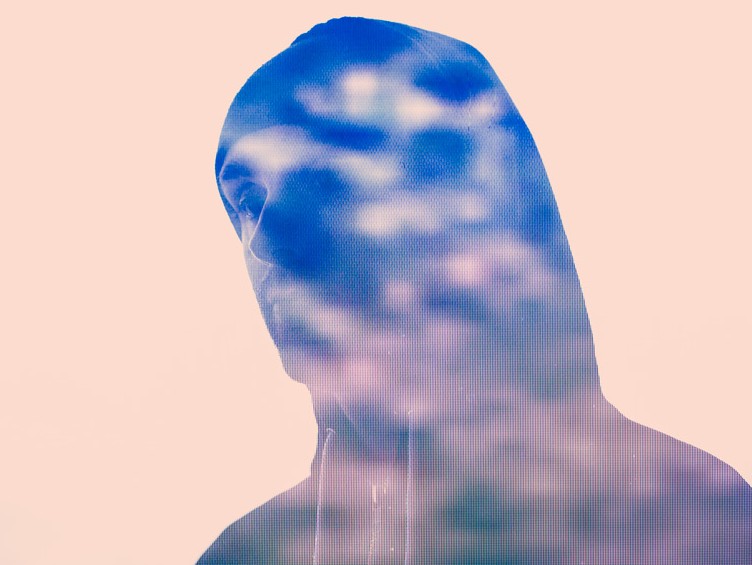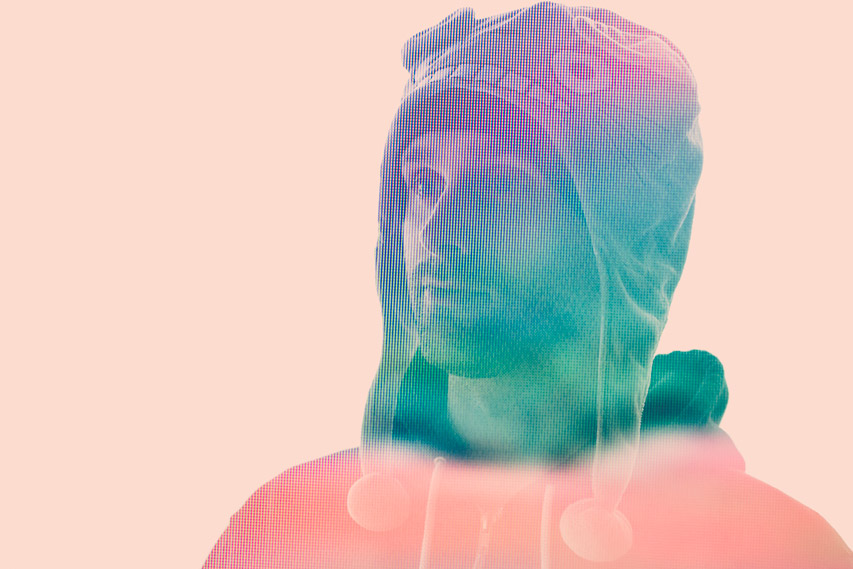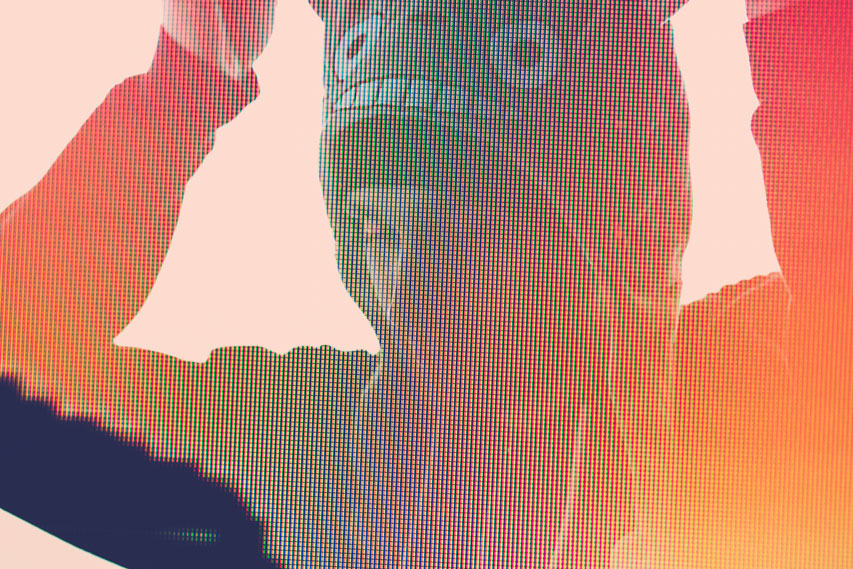kidkanevil is a Beatsmith, Geek, Interviewer, and Interviewee
 Thirsty for JUICE content? Quench your cravings on our Instagram, TikTok and WhatsApp
Thirsty for JUICE content? Quench your cravings on our Instagram, TikTok and WhatsApp

Text Alfonso Gomez + Cindy Low
Images Dan Medhurst
Gerard Roberts’ stage name is quite indicative of who he is as an artiste. Aside from being a portmanteau of the word ‘kid’ and a noun he can’t quite recall (the moniker was conceived when Gerard was just a, well, kid), it’s a name that conjures the childhood amazement and youthful mischief found in his music – the kind of music rooted in hip hop production as informed by his nerdier influences; namely anime and videogame OSTs. This is most obvious on Gerard’s 2014 release, the Kotaro Chiba-illustrated My Little Ghost, a lush, atmospheric album that plays like a hypothetical anime film (think a beat scene-scored The Girl Who Leapt Through Time). On the other end of the spectrum, recent record Rap Biscuits EP 1 sees him going ham with a production style indebted to the UK rap scene – grime flow over jungle, d’n’b beats. But fans of hip hop wouldn’t find these seemingly disparate influences so strange, as revealed in our chat with the Red Bull Music Academy alumnus, the genre has always had a sort of geeky tendency to it. Read on as JUICE and kidkanevil discuss the art of the interview, the oft-cited ‘Golden Age’ of hip hop vis-à-vis today’s hip hop, the obligatory Dilla question, and of course, anime and videogames.
Geek culture – be it videogames, cult movies, or anime – influenced you in a big way – it’s the same with a lot of other hip hop acts as well. What’s the connection, you think?
I think for me, in hip hop somewhere, there’s quite a geeky tendency, I suppose. There’s the vinyl culture, like collecting records. And being knowledgeable and nerdy about music is kind of like a similar mindset, I think. I guess an example would be Wu-Tang and their obsession with martial arts films and things of that nature. I think there’s a history of geekiness in hip hop behind kind of like acting cool on the outside, but inherently, it’s a pretty geeky art form.
Musically, what/who were the biggest influences coming from computer games and anime?
Hmm… that’s a good question. Actually with anime, I was into the orchestral stuff – like there was a series called 3×3 Eyes that I used to watch, which was really amazing for that. I mean, [then there are] obviously like Akira’s incredible score and all the Joe Hisaishi Ghibli stuff. For computer games, I was more on the 16-bit era; a lot of the Sega stuff like Sonic the Hedgehog and ToeJam & Earl, or like Golden Axe and Alien 3 for the more moody vibes. I don’t know if there were anything specifically, like just in general, everything just soaked into my psyche as a kid because I used to watch anime and play video games all the time, and still continue to do so. I think, in general terms, it just sank in.
There was an interview a while back where you mentioned you’d like to score an anime one day – your 2014 concept album, My Little Ghost, has a description straight out of a hypothetical Studio Ghibli film. Was that album trying to get that desire to score an anime off your system?
Yeah, a little bit. I definitely approached the album in that kind of mind frame. I think making music is quite visual to me; I usually have a cinematic idea in my mind. And I think making albums is partly like making a film or an anime or something. So, yeah, that album did sound like an anime soundtrack to me. Being in Tokyo, I felt like I was in an anime too. I grew up on anime and when I actually got to go… suddenly, you feel like anime is not so crazy, because it was just kind of like what it’s like. I felt like I was someone on the outside just observing a little bit, I felt like I was in an anime in a way, just from being in Japan.
It was RZA that got you into beatmaking – take us back when you were 16 and still just listening to hip hop, what about his production that made you want to make music even though you’ve been playing the guitar since 12?
I think with RZA and early Wu-Tang stuff, it was so raw and DIY, it felt like stuff you can make yourself even if you were not trained in any kind of way – it has a nice appeal to it. When you hear that for the first time, it is kind of exciting. It’s new, vibrant, progressive music, but it also had a homemade, rugged feel which feels inviting – like, “Oh, I can do this,” especially if you were into music in general. I was really into jazz and funk at that age. I can hear how they used samples and how they’ve done stuff. I could kind of understand that and it felt approachable. I think it also goes back to your first question, so I think that’s why hip hop is quite geeky as well because it’s got that quality to it. Obviously like anime, I also watched a lot of martial arts films, so that side of Wu-Tang definitely resonated with me. So yeah, it just caught me in that kind of way, it made me feel like I could make beats as well.
We saw your hip hop picks on Bandwagon.asia – your choice Dilla records were on two ends of the spectrum; Dilla just three days before his death (Donuts) and Dilla when he just received attention (Fantastic Vol. 2), we thought that was interesting. Did they influence you differently style-wise?
Oh, that’s a cool question. Yeah, definitely. With Fantastic Vol.2, I think that’s my favourite period of Dilla sonically – how the drums are mixed and how they feel, just the quality of the sound, stylistically, like the loose drums. It was just so different at the time, and the quality was beyond everything else. And a lot of the things that make it genius are really subtle, so you have to listen to it for a long time before you can really understand it, which almost felt like jazz to me, which was really amazing. The main thing that I took from Fantastic Vol. 2 was drum texture — the sound quality of drums and spending time on drums — whereas Donuts is such a different thing. I remember when Donuts first came out; my friend did a little Donuts launch party in Leeds (laughs), I don’t know how many people were there, it was pretty low key because it was kinda like not so known in a way. I remember hearing Donuts — I got it the first day it came out — I was kinda confused because I was so used to Fantastic Vol. 2 and Welcome 2 Detroit. That kind of sound. I didn’t really understand it at first. I thought it was dope. There were no real heavy-sounding drums, there were chopped samples, it was mixed in a really weird way — it was really bizarre, kinda avant-garde in a way. It took a bit of getting used to; it revealed itself over time. Yeah, I think that kinda influenced me in a beat tape kind of way where I felt like it justified the beat tape as an album. It could just be like cool, little sketches, dope beats, and little ideas… It was just a different way of thinking about making an album, which was quite inspiring and freeing in a way. I think that was the biggest influence he had on the beat scene as well.

Being a 30-something hip hop head, what do you make of cats who are adamant about the ‘90s being the ‘Golden Age’ and chastise current hip hop?
I don’t really have time for that mentality. I think hip hop has always moved in these large, stylistic movements, and it’s always changing and forming in different ways. People are always finding new pockets with it — new ways to flow over the beat, new ways to feel the beat. And also, as far as I can remember, all these hip hop purists who are complaining about hip hop, there were so many people who were complaining about hip hop in the ‘90s too. There were always like an underground quality and a mainstream quality, I guess. For me, if something’s dope and something’s good — that’s what it is.
Is it harder to make banging music like ‘EWOK’ off your recent EP or the more atmospheric and experimental stuff like Basho Basho, Kidsuke, and My Little Ghost?
I don’t think it’s harder or easier to do either of those things, it just depends on what frame of mind or mood I’m in. Half of the time I feel like I’m not in control, it’s just like whatever’s gonna come out is gonna come out. Sometimes it goes in this direction, sometimes it goes the other way. The only thing I would say is if you wanna work in a club environment, it definitely has some rules to it, it makes it a little harder. Maybe you can’t be as experimental with the mix – for example, you can’t make it too complicated because the details won’t come across in a club. If you’re doing something purely for a listening experience, you’re kind of totally free. But sometimes rules and restrictions can be creatively inspiring too. I guess it depends on how you look at it.
To a lot of us, you’re primarily known as a beatsmith although you came from a performing hip hop DJ background. Do you like performing or are you more of the studio type of DJ-producer?
I’m definitely more of a bedroom beatmaker who’s in his own bubble — that’s my comfort zone. But I’ve always been super into DJing. I really enjoy playing live, but sometimes in my mind when I play live, I can hear things that can be better for the mix, or little tweaks that I wanna make. It’s difficult sometimes, playing your own music (laughs). So, DJing is easier because I can play dope beats whereas for a live set, I have to be a bit more constructed about it. I definitely do enjoy playing live and DJing, but where I’m most comfortable is in my own bubble.
You’ve sat on the other side of an interview before, interviewing DJ Shadow and Madlib no less. What was that like? Did you grow more empathetic towards music journalists or was there something different to an interview conducted by artistes themselves?
Yeah, I definitely have empathy for journalists because it’s not easy. I was asked by my friends at Bonafide Magazine to interview different beatmakers. I guess their idea was to get different perspectives. But if someone were to ask me to interview DJ Shadow, Madlib, or someone like that, I’m gonna say yes (laughs). But it depends on how open the person is to talk with, right? Like Shadow, he just talked loads. I just asked him a couple of questions and he’d give me a whole essay of answers. Madlib was super difficult — he is super cool and nice guy — but he didn’t say much (laughs). I got through my questions so quickly and I had to ask super random questions. Like I had a question where I thought I would get a long answer, but I just got like a one-line answer, and I was like, “Oh.” (Laughs)
You also interviewed DOOM – how sure were you it was really DOOM under that mask?
That DOOM thing was funny; I didn’t even know that it was gonna happen. I was having a nice conversation with Madlib and then I was getting super nervous because I was burning through the questions super fast. Then DOOM just walked in—it was in this pub in London—like in his mask. He had like a new black mask he just had made. He just sat down right next to me, I was like, “Holy shit!” He was actually a bit of a lifesaver because he would really talk a lot more, and once they started chatting together, the interview was really easy and exciting. I got a bunch of amazing nerdy stuff out of them conversing. It was a super cool vibe. I think he mainly wanted to talk about beer though (laughs).
Is interviewing other musicians something you’ve developed a fondness for?
Yeah, I definitely enjoyed the experiences. But it’s kind of scary as a journalist, I feel like, “Oh man, I’ve got to think of some questions and I hope I get good answers.” I didn’t know what to do, like with the Madlib one. I had loads of questions, but I went through half of it really quickly, I thought I had enough. It was quite nerve-racking. Maybe you could give me some tips for the next time (laughs).
Finally, to end this on a nerdy note, what’s one anime or manga everyone should check out?
Okay, anime… I think one of my favourites is one from Studio 4°C called Mind Game. It’s the Masaaki Yuasa one where it has this super crazy energy, but kind of surreal—it was just super amazing. Daisuke Tanabe introduced me to it actually. It has a unique mix of styles, the story, the narrative is really crazy, and the characters are super amazing. It was definitely one of the weirdest anime I’ve ever seen, and that’s saying a lot, obviously. And it had like the best “meeting god” scene (laughs). The guy gets killed in a very strange way, and there’s this conversation with god, but it was just really weird. Yeah, so good, so good.
For manga, this is an old one. I actually used to read it when I was a teenager and I’ve just started reading it again. In the UK, it’s called Battle Angel Alita, I think the original title is Gunnm. It’s a really amazing manga that’s about an android girl who falls from the sky, trying to figure out who she is in the world. In her past incarnation, she was a bounty hunter; she takes that role up again. It’s also got this crazy social commentary, like all the rich people live in a city in the sky and they sort of exploit all the poor people below, so it’s got this socio-economic commentary as well. It’s a really good anime as well, but the manga is super amazing.
kidkanevil is set to speak at Red Bull Music Academy Pres. kidkanevil at APEX, Zouk Club KL on Friday 4 March ’16, which he will later spin at for the afterparty.

 Get Audio+
Get Audio+ Hot FM
Hot FM Kool 101
Kool 101 Eight FM
Eight FM Fly FM
Fly FM Molek FM
Molek FM